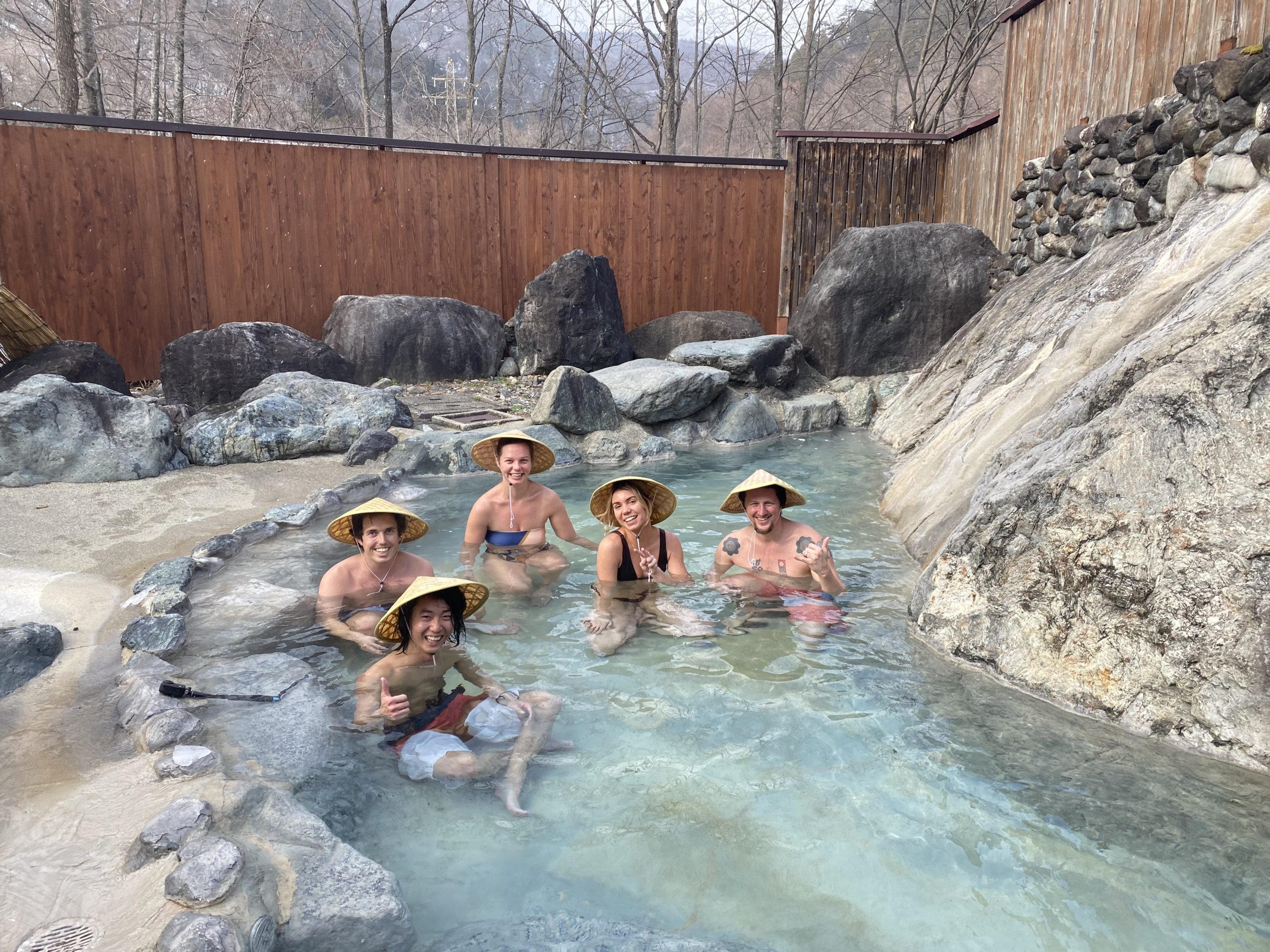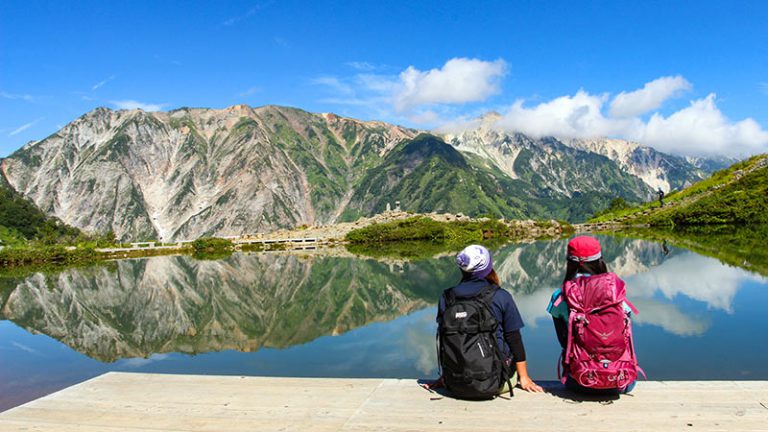Japanese people rave about them and travelers find them nerve-wracking. Getting naked in an onsen may not be for everyone, but did you know they are great for your health. The top 5 health benefits of a Japanese bath and why you should be stripping down to get into an onsen.
July 8th, 2020 | by Mike Humphrey
Hakuba is an outdoor playground with mountains, rivers, lakes, and more. When you play hard, you need to take advantage of every opportunity to rest and recover. Say hello to Hakuba’s amazing onsens. There is no better way to recuperate from an active day than sitting in a Japanese hot spring.
There is a reason Japanese bath culture has been around for over 1,000 years. Japanese tourists flock to hot springs and locals often use them daily instead of bathing in their own homes. The purpose of a bath in Japan, besides the obvious of cleaning your body, is to relax. When taking a bath in Japan, you first rinse your body before getting in. Getting in the tub is less about bathing and more about allowing the heat and water to soothe your body and mind. The water temperature usually 40-43 degrees C, seeps into your body as you relax and rejuvenate. Find out the top 5 health benefits of a Japanese onsen below.

-
The hot onsen water improves circulation and increases metabolism
Japanese hot springs are kept at a piping hot 42 degrees Celcius. Some may find this too hot, but if you take your time getting in it’s well worth it. Traditionally in Japan, you take a bath/onsen right before bed, it heats your whole body and keeps you warm all night long. After an active or strenuous day, the hot water warms your body, improving circulation, and increasing your metabolism, helping you to better relax and recover.
-
Restorative Minerals
The geothermically heated waters naturally contain up to 19 different minerals including calcium, sodium bicarbonate, sulfur, and iron. As you soak in the hot water these minerals are absorbed through the skin, increasing circulation and oxygen flow. According to the Japanese Association of Secluded Hot Spring Inns, onsen minerals can have the following benefits:
Sulfur: Beneficial for dry skin conditions; reduces hypertension and arteriosclerosis
Copper: Improves anemia
Radium: Alleviates joint, muscle, and nerve pain
Carbon Dioxide: Reduces blood pressure
Silica: Alleviates and softens dry skin
-
Buoyancy
When you get into a Japanese spa, the water supports and surrounds your body. Floating free of gravity in the tranquil water your muscles release and recover. Floating has been shown to reduce pain, muscle tension, stress, and anxiety. Floating also increases feelings of relaxation, well-being, energy, and ease of movement.
-
Pressure
The water pressure on your arms and legs causes the blood in your extremities to your core, increasing circulation and oxygenation of the blood. The water acts as a compression device on your body and reduces swelling. The pressure on your skin dulls the nerve response and reduces pain allowing you to relax and recover.

-
Relaxing Atmosphere
The whole experience of visiting an onsen is almost meditative, it’s a time for quiet reflection. The atmosphere is a relaxing moment of me-time in a hectic day.
Hakuba has a wide variety of Japanese hot springs, including a number of open-air baths (rotenburo) that have excellent views of the mountains.
Hi, welcome to Events Hakuba. I started this site about eight years ago with a friend (who’s since moved away) to help travelers get more out of their time in Hakuba. What began as an event calendar has grown into a resource for everything from logistics to local insights.
It’s a one-person operation, and while I do my best to keep things current, it’s not a full-time gig—so thanks for your patience if anything’s slightly out of date.
If you’re curious about my main work, I run The Fifth Business — helping independent hotels scale guest revenue, retention, and operations without adding complexity.








3 Comments